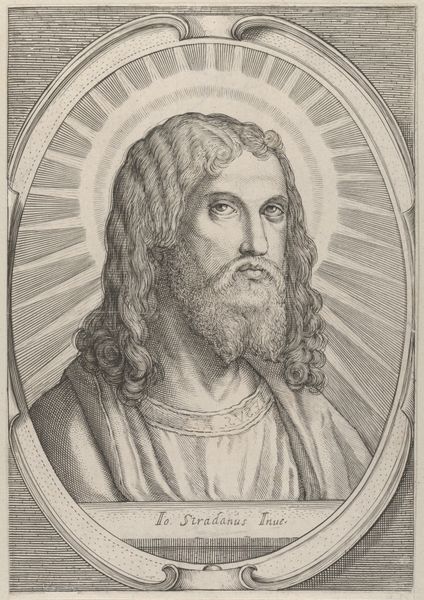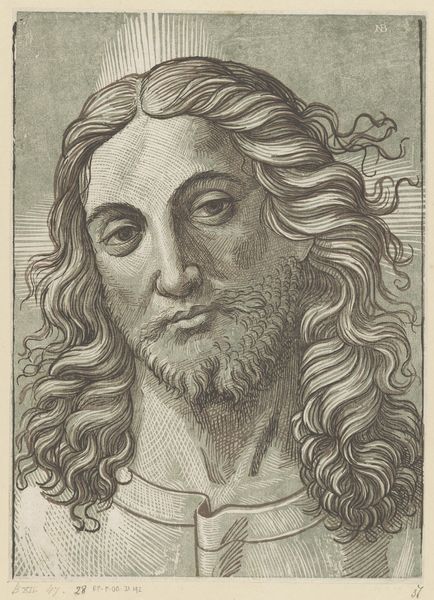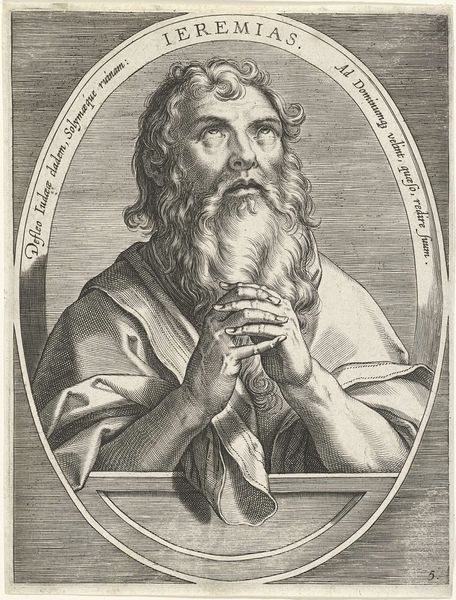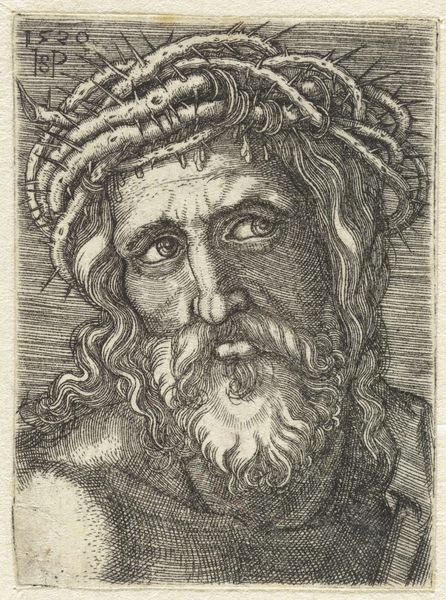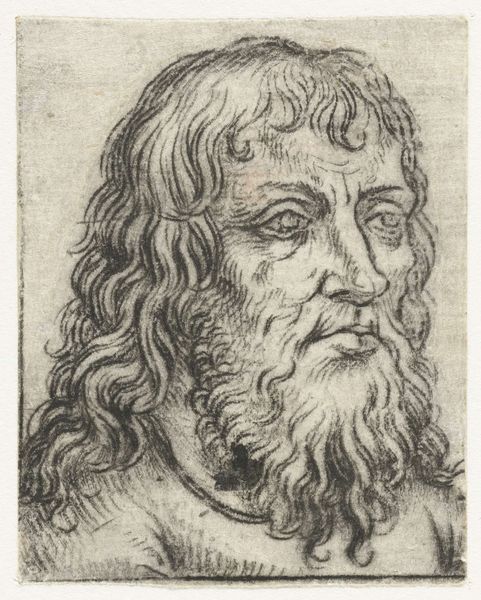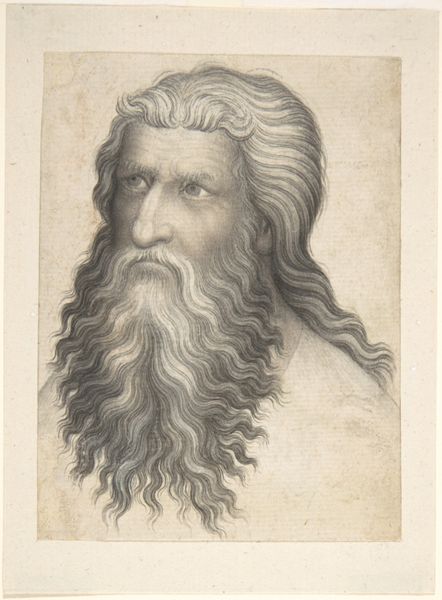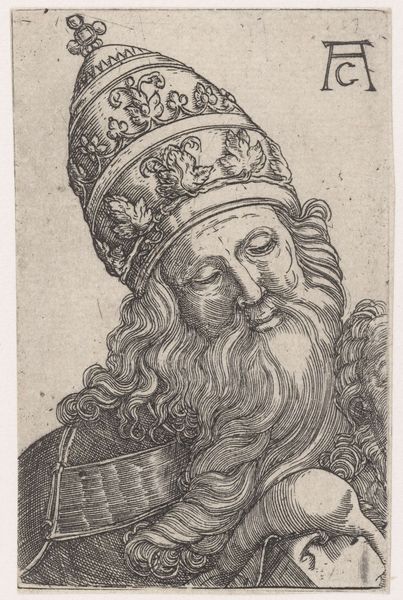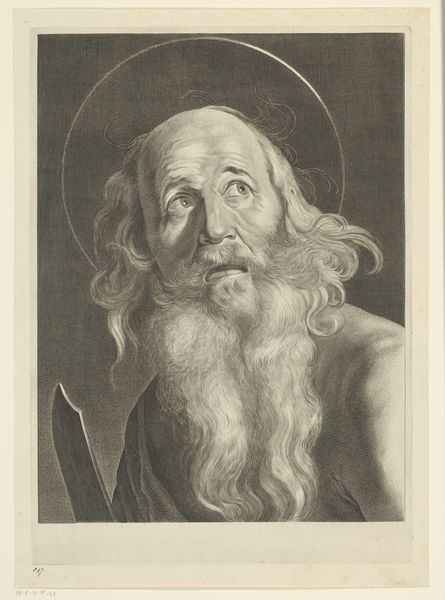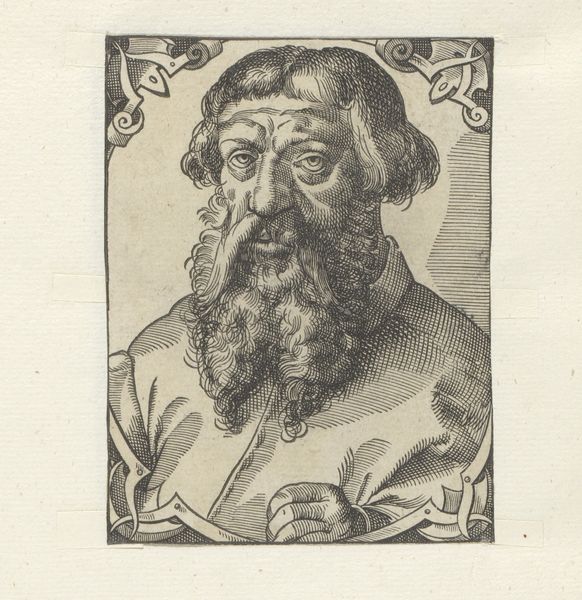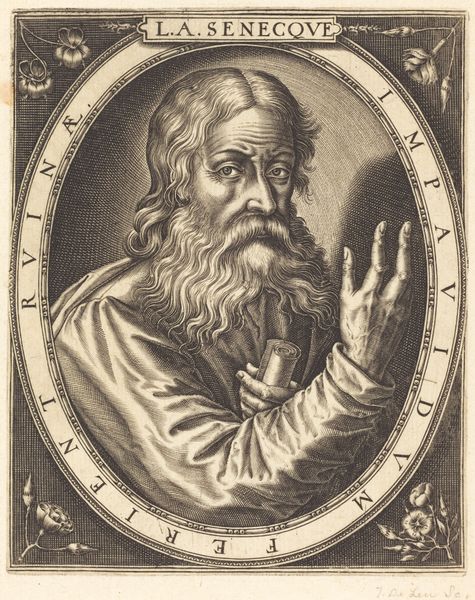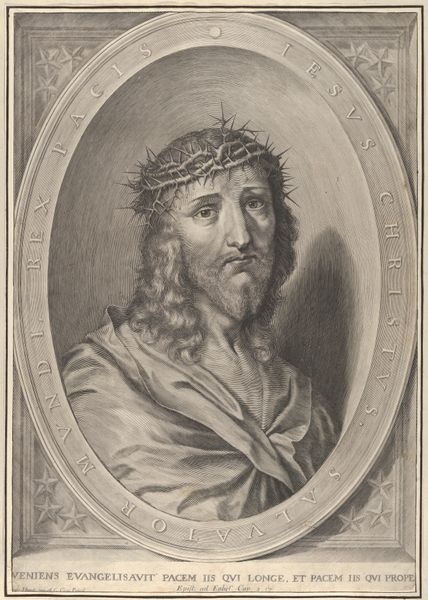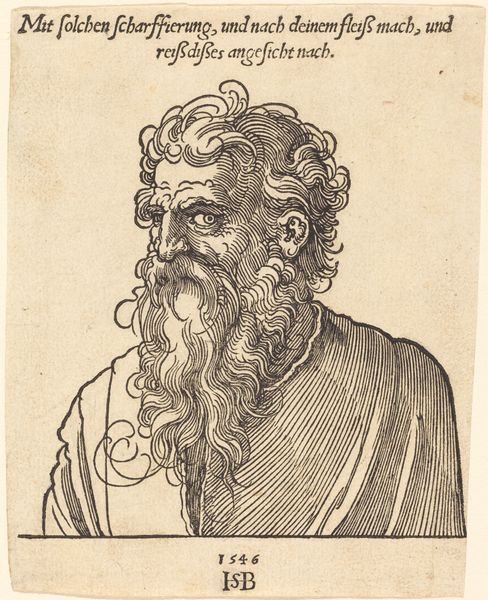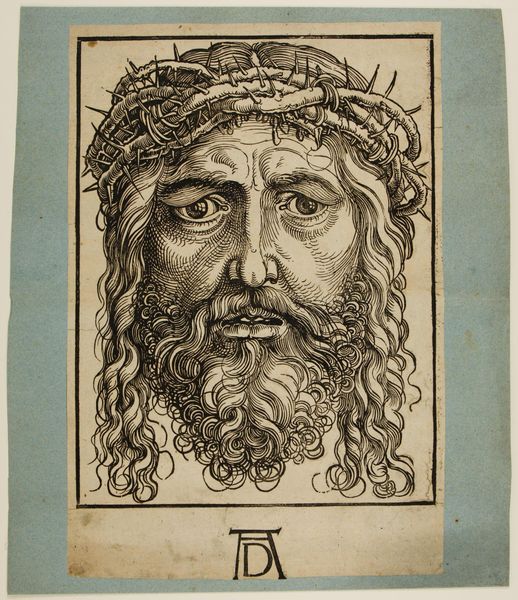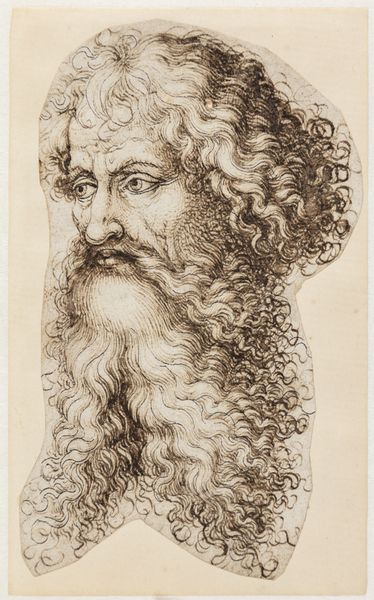
drawing, print, etching, engraving
#
portrait
#
drawing
#
baroque
# print
#
etching
#
greek-and-roman-art
#
engraving
Dimensions: Plate: 5 5/16 × 3 11/16 in. (13.5 × 9.4 cm) Sheet (Trimmed): 5 1/2 × 3 7/8 in. (14 × 9.9 cm)
Copyright: Public Domain
Editor: This is "The bust of Plato, in a niche," an engraving and etching created by Lucas Vorsterman I sometime between 1615 and 1625. He really captures a kind of thoughtful, almost melancholic mood here, I think. What’s your read on this one? Curator: It's like catching Plato in a moment of profound introspection, isn't it? I'm struck by the detail Vorsterman manages to achieve. I mean, look at the textures in his beard. And that slight downward gaze--does it suggest humility, perhaps, or the weight of his own intellect? He's framed, almost enshrined, isn’t he, in that niche? And by the way, Vorsterman worked closely with Rubens; Rubens “prixit”, meaning invented or designed it. How does knowing that connection shape your understanding? Editor: Knowing Rubens designed it does lend a grander air, I think. Like Plato isn't just a guy, he's an icon being presented. Curator: Precisely! There’s this deliberate classical composition, typical of the era, which almost transforms the philosopher into a saintly figure, wouldn't you say? It invites us to engage with Plato not just as a historical figure, but as a timeless wellspring of wisdom. I am curious what feelings the artwork invokes within you? Editor: It makes me wonder what Plato would think of being rendered this way, so many centuries later. Does it capture the real him, or is it just an idealised version? It feels a little removed, maybe. Curator: Ah, that's a lovely point! Is it possible to ever *truly* capture someone? The "real" Plato is elusive, perhaps forever just beyond our reach. What do you take away from your consideration of the print now? Editor: I'll definitely be thinking more about the role of interpretation in art – and maybe cracking open "The Republic" again soon. Curator: Wonderful. It reminds me of a quote - let’s make sure it's attributed! “Philosophy begins in wonder.” – Plato. Or, more likely, one of Plato's many characters speaking for him. Food for thought, indeed.
Comments
No comments
Be the first to comment and join the conversation on the ultimate creative platform.
